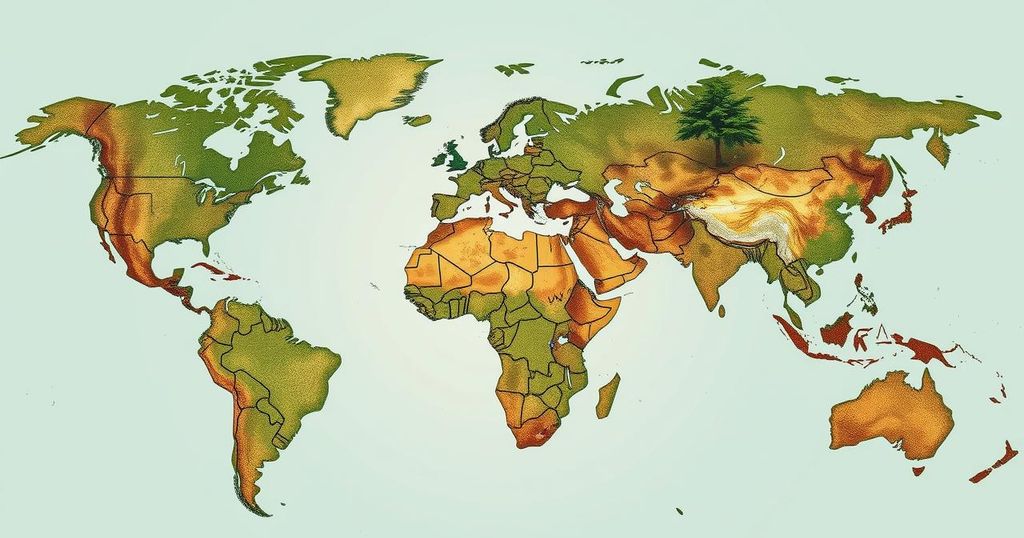Recent investigations have revealed alarming human rights abuses associated with voluntary carbon market projects. Despite intentions to combat climate change, projects like the Kasigau Corridor and Southern Cardamom REDD+ have been implicated in serious violations against local communities. Verra, a primary certifier of carbon credits, faced criticism for inadequate responses to these allegations, undermining claims of integrity within the offset market.
The recent establishment of a new international carbon market at last month’s climate summit in Baku has ignited significant concerns regarding the ethical implications of carbon offset projects. Research conducted by our organizations, SOMO and Human Rights Watch, highlights alarming patterns of human rights abuses associated with these projects. The voluntary carbon market, designed to compensate for carbon emissions through credits linked to environmental initiatives, has failed to adequately protect the communities it claims to assist, notably in cases where egregious misconduct has been reported.
Carbon offset credits are purchased by corporations, governments, and individuals to neutralize their greenhouse gas emissions, often through initiatives aimed at forest conservation or reforestation. However, investigations have revealed that numerous high-profile projects have misrepresented their environmental benefits and engaged in fraudulent practices. The Science-Based Targets Initiative, which supports companies in reducing pollution, has publicly dismissed the validity of offsetting as a tool for achieving sustainability goals.
The voluntary carbon market has been met with a determined rebuttal from its proponents, who have launched campaigns promoting the integrity of their credits, while revisions to assessment methodologies attempt to restore the market’s credibility. Unfortunately, our findings illustrate that significant human rights violations persist within these initiatives. For instance, the Kasigau Corridor REDD+ Project in Kenya has faced recent allegations about rampant sexual harassment and abuse involving senior staff and rangers, affecting thousands of individuals linked to the initiative.
Similarly, at the Southern Cardamom REDD+ Project in Cambodia, reports of Indigenous community members being forcibly evicted from their ancestral lands highlight the serious repercussions these projects can have. Notably, both projects have garnered millions in revenue while being certified by Verra, a leading standard-setting organization that oversees carbon credits. Despite being informed of serious infractions, Verra’s investigations fell short, lacking direct visits and discussions with affected community members.
After temporarily suspending the projects amid these allegations, Verra reinstated them, asserting that corrective actions had been taken. However, their review did not sufficiently engage with the realities faced by local populations. Verra openly acknowledged its limitations, stating it cannot mandate compensation for safeguarding infringements, further exacerbating the vulnerabilities experienced by impacted communities.
Positioning itself as a key player in the carbon offset realm, Verra’s approach has failed to deliver the accountability necessary for genuine reform. The troubling findings emerging from such projects compel a reevaluation of the voluntary carbon market’s impact, especially considering its promise to support vulnerable communities. In conclusion, the ongoing human rights violations connected to these carbon offset initiatives necessitate urgent attention and action from regulatory bodies and stakeholders alike.
The voluntary carbon market operates on the premise that carbon credits can be purchased to offset greenhouse gas emissions, often tied to environmental conservation projects. Established as a way to incentivize sustainable practices, these markets have increasingly come under scrutiny due to evidence that they may inadvertently facilitate harm to local communities. This backdrop raises important ethical questions regarding the efficacy and consequences of carbon offsetting, particularly in light of the recent controversies surrounding high-profile projects.
In summary, the research conducted by SOMO and Human Rights Watch reveals substantial failures within the voluntary carbon market, emphasizing the need for rigorous accountability concerning human rights. Despite well-intentioned efforts to mitigate climate change through carbon offset projects, the documented abuses highlight a troubling reality where local communities continue to suffer. For meaningful change to occur, stakeholders need to prioritize human rights protections and reevaluate the mechanisms governing carbon trading.
Original Source: www.aljazeera.com






